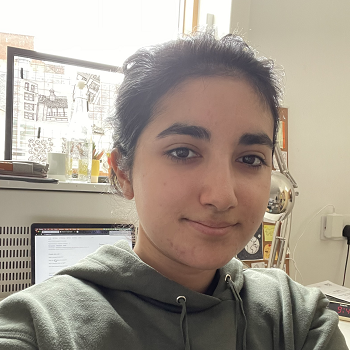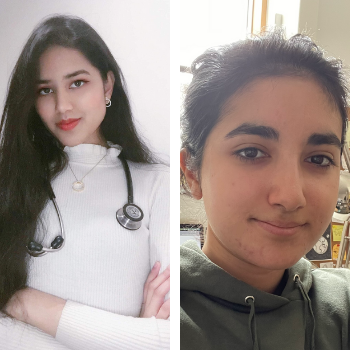Courtesy of Year 4 students, Krystal, Natasha and Zari, we have an insight into the clinical years based on their own experience, and some tips you might like to consider too.
Making the most of clinical learning

Starting clinical placements took me some adjustment. I’d heard that we shouldn’t expect to be spoon-fed information anymore, but instead to learn from discussion, observation and hands-on experience. To get the most out of being on the wards, I found that you really have to take the initiative rather than relying on the FYs to suggest my next ‘activity’, especially as they’re busy enough already. By paying attention during the ward round each morning, I could decide which patients might provide useful learning points.
During my diabetes online teaching, I made sure to speak to several diabetes patients, and also to look at their medications, background of admission and current issues. If a medication choice or blood test result was unclear to me, I would ask an FY – all of the FYs were very helpful and most seemed to enjoy the teaching opportunities. Through coming to understand the full clinical picture of certain patients, I think this cemented the knowledge I was being given from lectures – Natasha
Nothing quite whisks you into steel-like focus and determination than failing a consultant’s quizzing or seeing conditions which had once seemed abstract textbook concepts, in the flesh, exhibited in a suffering patient. From hearing your first murmur to seeing flashback when taking bloods, being on the wards is a thrilling and rewarding experience.
One can initially feel like a shadow or a nuisance; to combat this, you can discover practical ways to integrate yourself into the team: fetching notes, scribing, examining, and presenting patients to senior team members.
I’ve had the privilege of being on peripheral placement in Kirkcaldy and at RIE on the Orthopaedics ward; both experiences have been pivotal to my development as a medic and the learning curve has been exponential – Krystal
Rethinking stereotypes and managing expectations

This may be the result of pessimism, but I’ve enjoyed most experiences more than expected. I couldn’t say I was very invested in cardiology before starting placement on a cardiology ward and I found it the most academically challenging specialty. But being on the ward and experiencing conditions in real people has been far more engaging and my theoretical knowledge of valves, arrhythmias and cardiomyopathies has developed beyond what I ever achieved watching lectures and reading textbooks.
I’m currently on GP placement and certain stereotypes dulled my enthusiasm going in. Again, I was pleasantly surprised. It’s inspiring watching the GPs and nurse practitioners use their incredible people skills and deductive reasoning to ‘solve’ cases almost like fictional detectives.
Being the medical student on a ward is alternately rewarding and challenging. There are periods of time when I feel like a helpful member of the team and others when I feel like a spare part. This varies between wards and within individual placements, so I’ve learned to avoid feeling disheartened if some days feel less productive or enjoyable than others. Occasionally, I feel like I’m being thrown into the deep end, like being asked to see a patient alone or perform a clinical skill for the first time. However, these experiences often generate the most impactful memories and teaching moments – Zari
Interacting with members of the multidisciplinary team
Although I sometimes felt as though I’m hassling the FYs, my advice is to try and reciprocate by being useful in any way. This did mean that I once spent almost a full day taking bloods and cannulating, after I asked some stressed FYs whether there were any jobs I could help with. But it does feel good to be of use, and besides this being great practice at my clinical skills, the FYs made time to give me plenty of teaching during the quieter evening.
I speak about the FYs, but it’s important to be helpful to all of the ward staff. The insight that I got from my shifts with the ward nurses and physiotherapist were valuable because I learnt how the ward functions as a unit. Nurses rightly could be annoyed when one of the doctors wrote a prescription in the wrong box or didn’t give a proper handover. Equally, as medical students, we should cooperate with and help the nurses when we can – Natasha
Developing resilience and knowledge
Eventually, one builds up ‘placement stamina’, learns to keep a ‘mental fluid chart’ to prevent dehydration on long ward rounds and importantly discovers where to stand during surgery to avoid becoming a theatre obstacle whilst enjoying optimum views.
Discussing a patient with a senior doctor offers the unique opportunity to evaluate your knowledge base and clarify misunderstandings. Placement provides a fantastic training ground, a ‘rehearsal’ for future practice, and if viewed with this attitude, placement can equip you with the skills and confidence required of a good doctor – Krystal



